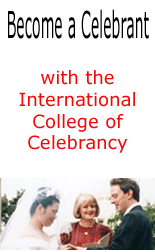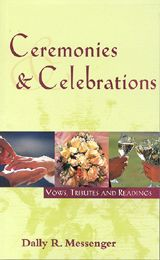| Believers and Unbelievers
by Dally Messenger
(First published in the AFCC Newsletter) Jan 3, 1997
Twenty years or so ago, I got myself into a passionate argument. Two of my teaching colleagues at Haileybury were making the case that it was a good thing to go to church on Sunday, and to take their children to church, and to develop an allegiance to a denomination — even though they did not believe in God.
As the old saying went — “I could hardly believe my ears”.
“What?” I exclaimed, distressed. “If God doesn’t exist, church services, and religions, and all that go with them are just farces — a whole complex of rubbish without rational, logical or any hint of philosophical foundation.”
The two were not a bit fazed by my confusion. The church and religion, they argued, was the conveyor of culture, the transmitter of important ethical values, the inspiration of great architecture, English literature and music. It was worth preserving and supporting. Who gives a stuff whether the God on whose existence the whole infrastructure is predicated exists or not — it is the infrastructure which is valuable! I remembered my step grandmother, a dedicated devotee of the Anglican Church — she never gave me any other reason for her devotion than that she loved the music — and singing with other people. It gave her a great feeling. Most readers of this magazine will from time to time have mused on how obvious are the hurts and harms religion causes, the hatred it inspires, the superiority which creates the wars, and the rest of it.
There are those, however, who are very attached to the habits, trappings and value systems, psychological support, (remember “opium of the masses”) and sense of identity and stability which organised denominations bring.
Take the extraordinary case of the Reverend Anthony Freeman, a story which I found personally absorbing and fascinating.
He lasted , if you noticed, on the news for at least two days. He was a cast-perfect English Vicar, standard soutane, Roman collar, videoed in front of his bluestone church complete with surrounding English country gravestones.
His Bishop had just suspended or excommunicated him, I’m not sure which, to take effect, in the quaintly ruthless way of the Church of England, at the end of the second month!
It turns out that the Reverend Vicar had written a book titled “God in Us”. Deep in the recesses of the book the key sentence emerged — God is the sum total of the internalised principles by which we live — or words to that effect.
Under questioning by his Bishop, the Reverend Anthony admitted he could not come at a creator of the world, God in the person of Jesus, or anyone or anything external, i.e.,— any separate Being/being.
So the Bishop gave him the sack.
The parishioners were interviewed. One said he was great on the school council, they all said he was a great vicar in all sorts of ways. The interviewer pressed the question of the external God. No-one seemed to care about the question — one elderly lady thought that it was a bit strange — that’s all.
A most insignificant event, according to my memory, finished the account. Thirty one of the vicar’s fellow vicars wrote a letter to the Times of London, asking — What had happened to free speech in the Anglican Church?
Lest my style of mind isn’t yours, I will be primary and give you my conclusion.
If God is only the sum total of our internalised principles, the value system by which we live, now we all have such a system. We might even call it our spiritual life. The Reverend Anthony Freeman called it his religion, his God.
I personally believe that the majority of practising religionists, if you scratch them, don’t go any further in their convictions than the vicar.
The bottom line in his theory is that we are all, except for the fundamentalists and the insane fundamentalists, simultaneously believers and non-believers.
It was Gordon Barton who said years ago that the biggest challenge facing a rational society in the 20th Century was to find a feasible, structured cultural substitute for organised religion. Perhaps the Reverend Anthony Freeman has moved us a bit closer.
© D and R Messenger
| 

